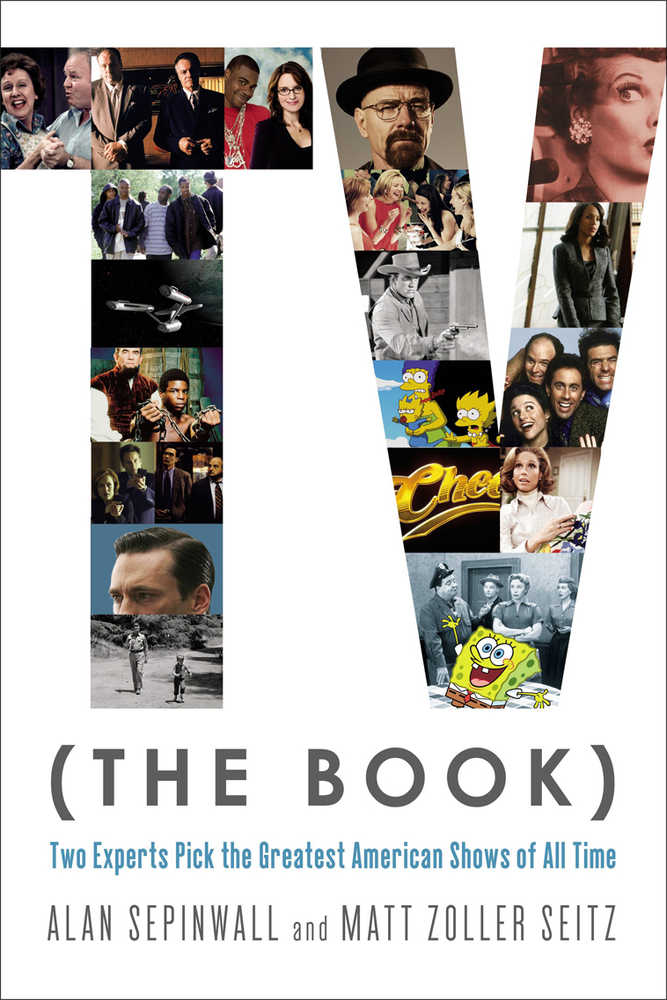The weather outside is frightful.
That’s alright. You’d rather stay inside anyhow, especially in the evening. That’s prime relaxation-time, and winter is a great season for catching up on all you’ve DVR’ed for the past few weeks… but where do you start? How about with two books: “Television: A Biography” by David Thomson (c.2016, Thames & Hudson, $34.95, 304 pages) and “TV (The Book)” by Alan Sepinwall and Matt Zoller Seitz (c.2016, Grand Central Publishing, $19.99, 432 pages).
Once upon a time, TVs were turned on manually. You’d then (also manually) dial up one of three available channels (more, if you were very lucky) and you settled in (Not too close! You’ll ruin your eyes!) to watch programming in black-and-white. In 1949, a TV set cost roughly 10 percent of the average U.S. salary — and yet, we couldn’t get enough of it.
In “Television: A Biography,” Thomson looks at the different kinds of fare with which we’ve entertained ourselves through the decades. Movies gave us the cliffhanger, for example, but television refined the until-next-week craze with shows like The Fugitive and, later, with Dallas and its spin-offs.
Here, we read about how many of Hollywood’s biggest stars made their transition to the small-screen; how talk shows became so popular; how innovators changed the way we watch TV, and why crime shows will never, ever go away.
This book, remember, is a biography. Yes, you’ll find a bit of history inside “Television: A Biography,” and a few opinions but it’s really nothing like you might expect in a book about TV. It’s actually better.
But okay, say you want a book about the shows themselves. What do you think is the best television show ever? A little bit of argument is inside “TV (The Book).”
Under a wide group of genre umbrellas, Sepinwall and Seitz debate which series top their lists, based on a points-system that takes innovation, performance, consistency, influence, and storytelling into account, as well as when the show was at its “absolute best.” They considered U.S. shows only; and looked at “narrative fiction,” rather than reality shows, children’s programming, or talk shows. And aside from a few obvious programs that should be on every Best Of list (The Honeymooners and The Twilight Zone, for example), they mostly focused on television from the 1980s.
What’s fun about this book is that the authors dissect the programs as only fans can: there are quotes flung about in each chapter, along with serious examinations of why we can put The Simpsons in front of The Sopranos (or not); why we so loved a show with a “black comic heart” and “shallow” characters; how M*A*S*H lasted longer than the war it was ostensibly about; and why South Park got more points than Taxi. And if your favorite show isn’t in this book, there’s a reason for that. Read on…
In fact, while it might seem counterintuitive to read about something you’re supposed to be watching, you can do two things at once, you know. Look for “Television: The Biography” and “TV (The Book)” and settle in. Both are frightfully good.
The Bookworm is Terri Schlichenmeyer. Email her at bookwormsez@yahoo.com.

